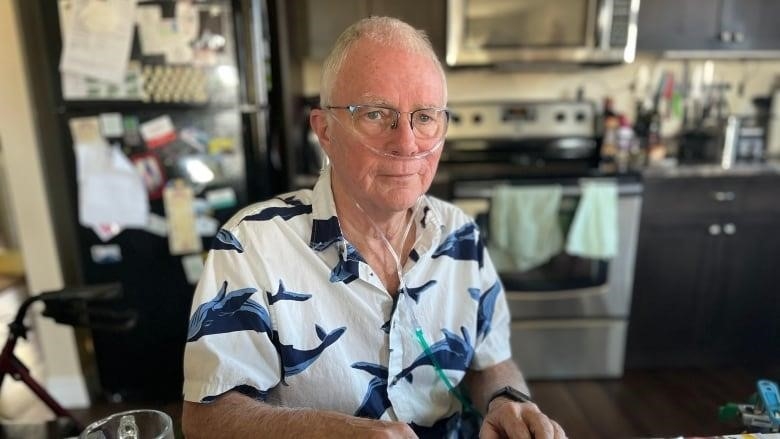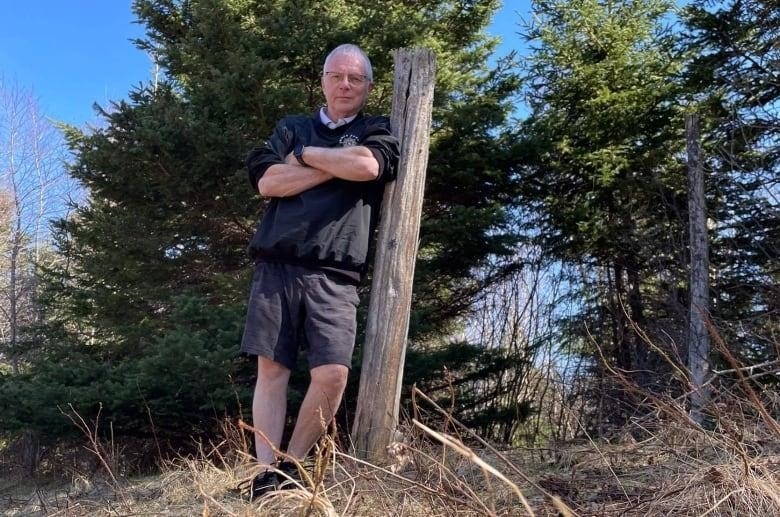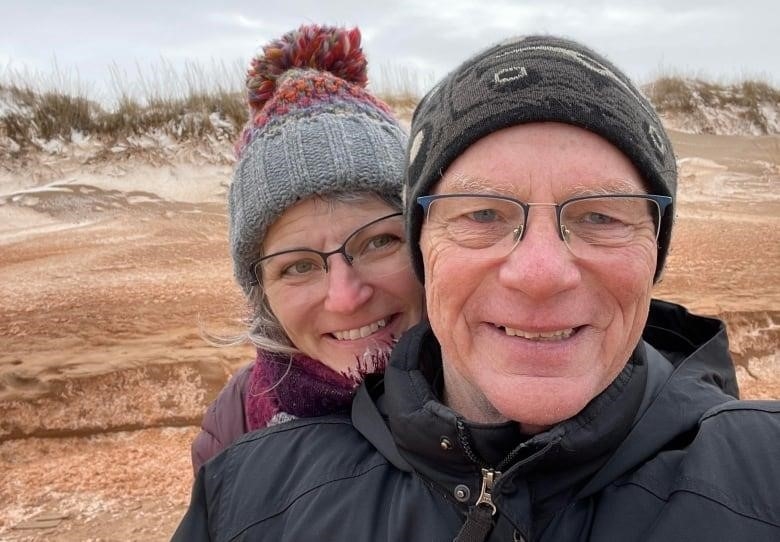
In a new Atlantic Voice documentary, you can listen to the story of Craig Mackie’s life
In the weeks before he died, Craig Mackie’s short, sharp breaths were like the short, sharp strokes he was making on his laptop keyboard to record his last days.
At the beginning of October 2022, Mackie said from his kitchen table in Charlottetown, “At this point in my fading life, I struggle to breathe every day.”
Mackie, 71, was constantly gasping for air and needed almost constant help from oxygen because of pulmonary fibrosis, which caused his health to quickly get worse. For months, he used what little energy he had left to write long dispatches about his health, sometimes from his home and sometimes from a hospital bed. Then, he told the public about these ideas on a blog and through social media.
“People have told me that they like the way I write because it seems to speak to a lot of them. So I’d like to keep that going, “said Mackie.
He looked into the possibility of a medically assisted death because he didn’t want to die like his mother had. She also had fibrosis of the lungs.
Mackie said, “She literally choked to death.” “And I thought, If I ever have a choice, that’s not what’s going to happen to me.”
Starting conversation
Since 2016, MAID, which stands for “medical aid in dying,” has been legal in Canada.
In September, Mackie’s application was approved, and having that option gave him peace of mind. He had been in leadership positions throughout his life, such as at CBC Prince Edward Island and as the former head of Immigrant and Refugee Services Association P.E.I. Sharing his thoughts online about MAID was a way for him to keep using his voice and connect with others.
“I wanted people to know that we have this choice in Canada, that it’s very special, and that it could be taken away easily,” said Mackie.
“We know from the Roe v. Wade case in the United States that these things can be made illegal or taken away by law. So I want people to understand that it’s a kind, human decision.”
MAID remains contentious in Canada. The proposed law to make it easier for people with severe mental illness to get help has been criticized. Changes have been put off until 2024 while the federal government, provincial and territorial partners, and the medical community figure out the best way to move forward.
Only a few doctors and nurse practitioners on Prince Edward Island work in this area of health care. Dr. Megan Miller, a family doctor with extra training and experience in palliative care, said the focus is on helping patients who want to know more about MAID understand their options.
“It’s a very strict, very careful process that we take very seriously as professionals. And we do this work very carefully and thoughtfully “said Miller.
“Patients are never put under any kind of stress. They can change their minds or pull back on their request at any time, and we will support them no matter what.”
We are created. We exist. We die. I’m interested in what you do with the middle of that sandwich.— Craig Mackie
Between 2016 and 2021, 111 people in P.E.I. died of MAID, and the number is rising every year. Miller says that it’s a complicated and very personal decision, and that more people apply for it than actually do it.
But she says that it helps everyone if we talk more openly about death and MAID.
Miller said, “I think it can be a lonely time for some patients and people who are going through it.”
“I think there are a lot of people in the public who don’t know how to help or talk to those patients because it’s awkward, and we’d all be better off if we could share some vulnerability and uncertainty and talk about it.”

Opening people’s eyes 
Mackie was ready to set a date for MAID by the beginning of October. He had been honest about his medical journey so far, and he kept writing about his final decision.
“I don’t worry about dying. It’s a normal part of the way life works. We are created. We exist. We die. I’m interested in what you do with the middle of that sandwich “On Oct. 21, he wrote a post.
Mackie’s friends were able to stay in touch with him in his last weeks by reading his regular posts and adding their own comments, photos, and music. His Facebook page became a place where people went every day to read his latest post and see what other people had shared.
“I think Craig being so open about it has helped a lot of people understand how it works,” said Peter Murdoch, Mackie’s friend and former curling teammate.
“I think this will make it easier for people to talk, at least in Craig’s circle, because Craig is doing this.”
Mary Phalen, Mackie’s girlfriend, often shared the posts to keep friends and family close and far up to date on his health.
“I’m glad that people are finding comfort or maybe starting conversations in other homes. That’s a good thing, in my opinion “she told me.
“I can see how that has helped him feel better. I can also see how much pain he’s in. So, it’s just as hard to see someone in pain as it is to say goodbye. You should know that there are things worse than dying.”

Mackie’s last days were full of unexpected warmth, laughter, and joy because he was able to share his experiences and insights with friends, family, and acquaintances from near and far.
Mackie said, “Meeting and talking with all of these amazing people has been both a humbling and an uplifting experience.”
“Somebody described this whole process as kind of like a living wake. And I said, “Yeah, that’s about how it’s been.” It’s just that getting back together and remembering has been so overwhelmingly good.”
‘A natural end
There were less posts in the days before his death. His last thought was short and straightforward: “Death is a normal way for life to end. Stopping suffering is a kind thing to do at the end of life.”
That message came on his last day, November 2, 2022.
In the time since, some people still go to his Facebook page to remember him or tell him “I miss you.”
Todd MacEwan, Mackie’s friend and former coworker, said, “I think how you face death should be at least as important as how you face life.”
“It’s going to happen to us, and I think that seeing how brave and strong Craig was during his illness has touched a lot of people.”
